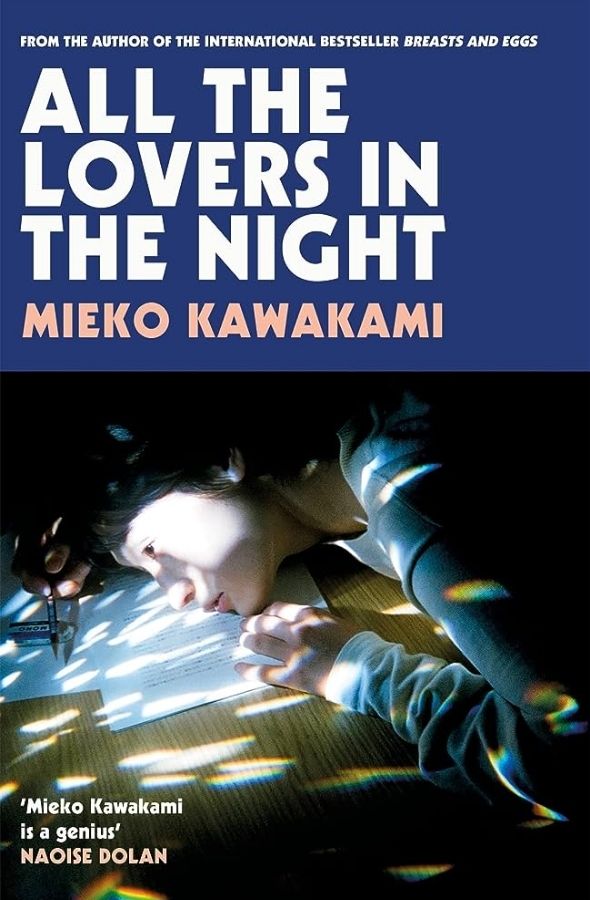The last in Mieko Kawakami’s main trio of works—All the Lovers in the Night evokes much of the same emotions and motifs found within her acclaimed debut Breast and Eggs, whilst also successfully mixing in the emotional messiness of her much shorter work Heaven.
The story follows Fuyoko Irie, a freelance proofreader who has always been quiet and unwilling to rock the boat throughout her thirty plus years of life. One day, almost at random, she encounters a much older man called Mitsutsuka, and they begin a pleasant, if awkward and unsteady, bond over the remainder of the year—with Fuyoko gradually beginning to realise she is falling for him amidst their talk of light, physics, and classical music.
Despite spending so much time with her, it’s amazing how little we get to know about Fuyoko. Of course, this sounds like a bad thing, but I don’t think so, because I enjoy rather distant and hard to define narrators. The same is true for Mitsutsuka, who we get minimal details on, making him quite elusive and almost like an entity that happens to occasionally manifest throughout Fuyoko’s days.
Mitsutsuka, despite being a love interest, rarely steals the reader’s attention from Fuyoko’s anxious narration. Not knowing much about a narrator’s family life or younger years can add a great element of mystery to that character, and helps us impart ourselves onto them.
What we do learn about Fuyoko’s teenage years, a mixture of loneliness and mistreatment, helps convey why she is so isolated and reclusive. It is also a good indicator of why she so easily falls for Mitsutsuka, even with a self-awareness for how little she knows about him, such as his full name. It’s seemingly because he is willing to be there with her, not minding her quietness or awkward nature.
All in all, this novel comes across as a much more refined Kawakami, which has its pros and cons. Her feminist imagery is there, more so in the women that surround Fuyoko than Fuyoko herself, but it never comes across as grating. The novel offers several critiques and ways of looking at either gender, relationships, sex, and family life. It also isn’t afraid to shed light on how horrible we are as people, how we often get caught up in our worlds, or how people like Fuyoko are easy targets for those who want to use them. To some, it may even be showing women as very delicate or self-centred beings.
However, like some segments within Breasts and Eggs, the novel did seem to fall into a lull. The downtime was essential, but you can feel the story dragging that bit more than you’d like to. In select moments, it was almost structureless, as though we are a ghost bearing witness to the mundane elements of Fuyoko’s day. However, without these momentary downshifts in tempo, it would make the peaks of the story much less impactful. Overall, it is just a slower and less intense story than most would expect from modern Japanese fiction.
This small criticism aside, it’s a great read. All the Lovers in the Night is full of Kawakami’s surprisingly dark and depressing outlook on people, which is the main reason why I love her works. Fuyoko’s life never shakes the faint streak of misery within it, even if she does change over the course of the novel. The ability to keep that misery and emptiness ever-present is one of the best traits of Kawakami’s writing.
Therefore, even with all its amazingly depressing storytelling, it is a beautiful and varied novel that boasts just as much quality as her other works. If you’ve read either of the previous two and enjoyed them, there’s no excuse to pass up on this one.

Leave a Reply